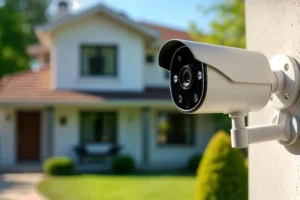When we think of home, we envision a safe haven where we are free from the dangers of the outside world. However, the unfortunate reality is that home invasions can happen, often with little warning and devastating consequences. In these situations, knowing how to protect yourself and your family can make all the difference. This guide will provide you with practical self-defense tips and strategies to help you survive a home invasion and safeguard your loved ones.
1. Prevention Is Your First Line of Defense
The best way to survive a home invasion is to prevent one from happening in the first place. Here are some key steps you can take to make your home a less attractive target for intruders:
- Secure Entry Points: Ensure all doors and windows are equipped with sturdy locks. Consider deadbolts for exterior doors and window bars for ground-floor windows.
- Install a Security System: Modern home security systems can deter intruders and alert you to their presence. Look for systems with cameras, motion detectors, and alarms that notify you and law enforcement.
- Lighting: Keep your home well-lit, especially around entry points. Motion-activated lights can startle potential intruders and alert you to suspicious activity.
- Reinforce Doors: Install door reinforcement hardware, such as strike plates and door jammers, to make forced entry more difficult.
2. Create a Family Safety Plan
Having a well-thought-out plan can help ensure that everyone in your household knows what to do in the event of a home invasion. Here’s how to get started:
- Designate a Safe Room: Choose a room in your home, ideally one with a sturdy door and a lock, where your family can retreat in case of an emergency. Stock it with essentials like a phone, water, and first aid supplies.
- Establish Communication Protocols: Ensure everyone knows how to contact emergency services. If possible, keep a charged cell phone in the safe room.
- Practice Drills: Regularly practice your safety plan with your family, so everyone knows their role and can act quickly if needed.
3. Responding to a Home Invasion
If an intruder does enter your home, your response will depend on several factors, including your location, the intruder’s behavior, and whether you can safely escape.
- Stay Calm: It’s natural to feel fear in this situation, but try to stay as calm as possible. Clear thinking can help you make better decisions.
- Avoid Confrontation: If you can safely escape the home, do so immediately and contact the authorities. If escape isn’t possible, retreat to your safe room and lock the door.
- Use Verbal Commands: If you’re confronted by the intruder, use clear, firm verbal commands to try to de-escalate the situation. Often, intruders are looking for easy targets and may flee if they believe they’ll be caught.
4. Defensive Tools and Techniques
Sometimes, confrontation is unavoidable. In such cases, having the right tools and knowing how to use them can help you protect yourself and your family.
- Non-Lethal Tools: Consider keeping non-lethal self-defense tools, such as pepper spray, a stun gun, or a personal alarm, in your safe room and accessible areas of your home.
- Weapons Training: If you choose to keep a firearm or other weapon for self-defense, ensure you’re properly trained in its use and that it’s stored securely to prevent accidents.
- Improvised Weapons: Everyday objects like heavy lamps, kitchen knives, or even a broom can be used as improvised weapons in an emergency.
5. After the Invasion: What to Do Next
Surviving a home invasion doesn’t end when the intruder leaves. Here are some steps to take in the aftermath:
- Call the Police: Even if the intruder has left, contact law enforcement immediately to report the crime. Provide them with as much information as possible, including a description of the intruder, their actions, and any items that were taken.
- Seek Medical Attention: If you or a family member is injured, seek medical attention right away, even if the injury seems minor.
- Secure Your Home: After the police have completed their investigation, take steps to repair any damage and improve your home’s security to prevent future incidents.
- Seek Emotional Support: Experiencing a home invasion can be traumatic. Don’t hesitate to seek support from a counselor or support group to help you and your family process the event.
Final Thoughts
A home invasion is a terrifying experience, but with preparation and knowledge, you can protect your family and improve your chances of surviving unharmed. By securing your home, creating a safety plan, and knowing how to respond in a crisis, you can turn your home into a true safe haven.
Stay safe, stay prepared, and remember that your family’s safety is always the top priority.





